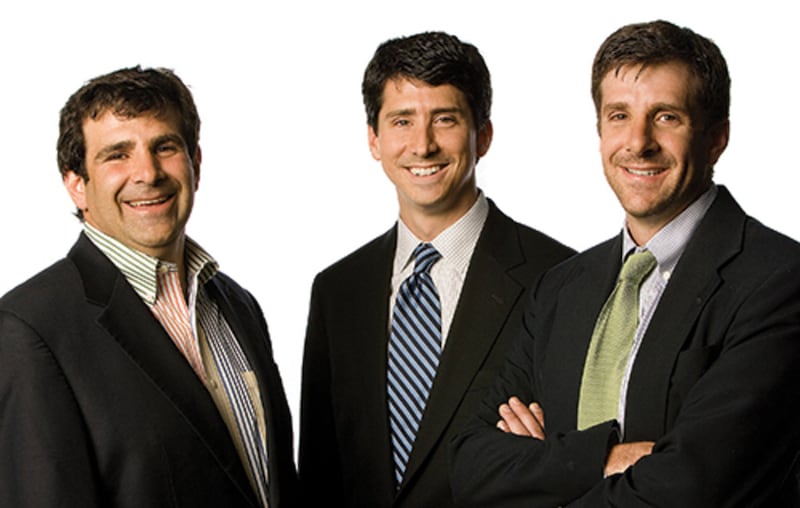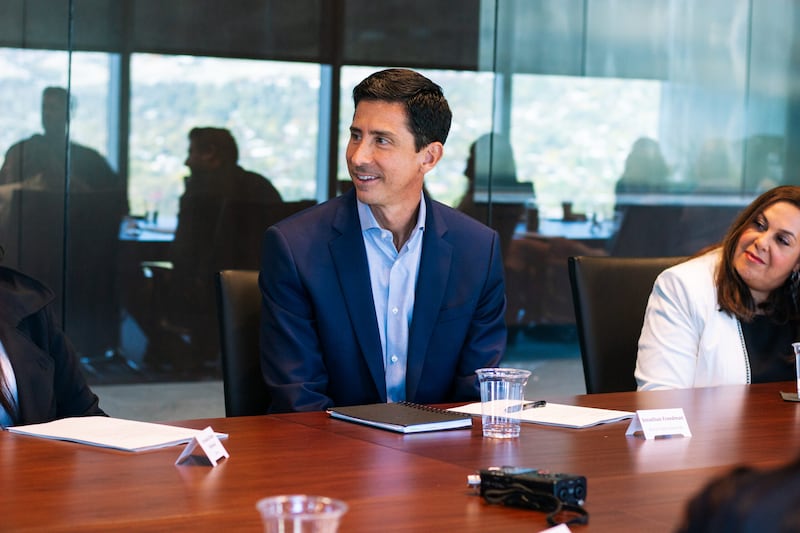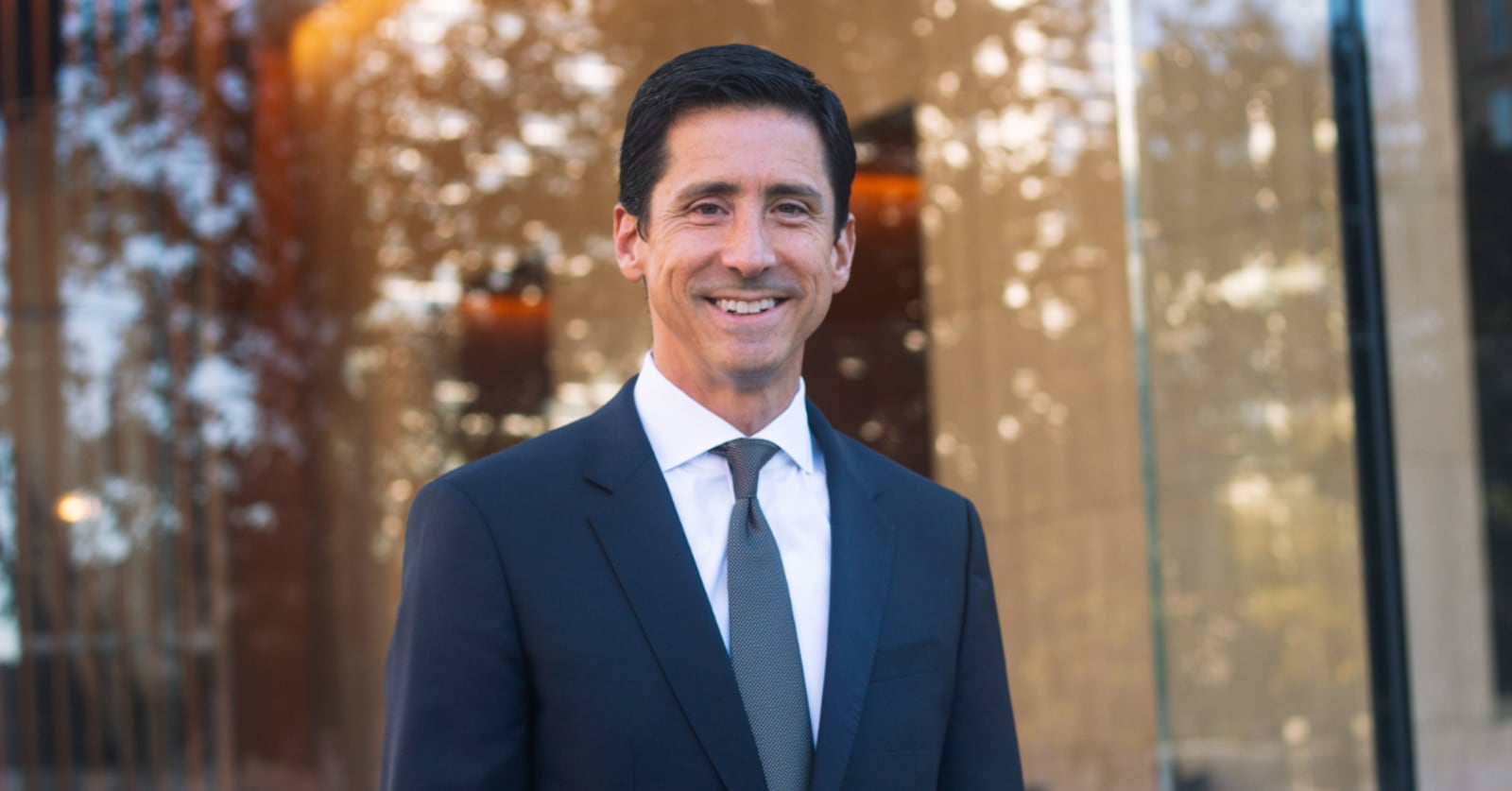Before officially going into business together, my brothers and I made a promise to each of our parents. Our mother, who preferred that we become doctors or lawyers with stable incomes, made us promise to only focus on the business in our spare time. College would be the priority until we graduated. And to our father, we promised that if the company ever came between us, we would close the doors and pursue individual careers.
Keeping our word on both promises shaped our business—and our family—for the better.
An entrepreneurial spirit
From a long line of entrepreneurs who immigrated to the United States from Europe in hopes of a better life for their families, both sides of my family share a strong work ethic. My father’s parents owned a pharmacy and several cosmetics stores outside of New York City, and my mother’s grandfather and father owned a department store in eastern Oregon.
After years of babysitting, mowing lawns and painting houses, I found my own venture in 1991. While vacationing for spring break in North Carolina during my senior year of high school, I stumbled upon a store selling deeply discounted J. Crew products—only it wasn’t a J. Crew store at all. I’d never seen anything quite like it before.
Intrigued, I identified the store’s source and contacted them. This middleman was buying large amounts of J. Crew clothing and was willing to sell them to me—$200 at a time. And whatever I spent, he promised, I’d double my money.
That represented a lot of lawns I wouldn’t have to mow that summer. People loved the products, and as word spread beyond friends and neighbors, things really got interesting.
Home from Brigham Young University (BYU) with internships for the summer, my older brothers, Bill and Charlie, took an interest in the budding business, which had outgrown my car and taken over our basement. They recognized the potential and knew it would work well in Utah. I hired them on the spot, but to my chagrin, it landed me in a headlock! Ultimately, they helped me see the wisdom in working together as equal partners. It was a great decision and one that our father was thrilled about. He was a big-picture guy and recognized it as an opportunity for us to work together and learn as a team.
Humble beginnings and grassroots marketing
Downeast, a nickname for the state of Maine, came to us during a whitewater rafting trip. It represented our shared history and roots. I’d like to tell you that “outfitters” was added following an intensive market focus group, but in reality, my brothers and I simply thought it sounded official, and we wanted to be taken as seriously as young men in the ‘90s could.
Our plan: I’d buy clothing and ship it to my brothers in Utah. They’d turn around and sell the clothes out of Gandolfo’s Deli in Provo on Saturday mornings before the restaurant opened. During their first road trip from New York to Utah following our launch, they took turns driving and made good use of their long trek. The shotgun rider attached price tags and wrote retail prices on tags
Downeast Outfitters was a shared hobby. By the time I graduated high school and joined my brothers at BYU, we were earning decent money. We reinvested the vast majority of what we earned back into the business to fuel growth; however, we paid ourselves just enough to buy Sundance ski passes and an occasional dinner at Sizzler.
Our good friend and roommate, Rich Israelsen, joined the team and helped my brothers move from the deli into our first store in Provo. The store was a 300-square-foot space with nothing more than a card table, cash box, cartons of clothing organized by size on the floor, and a small pipe-and-drape dressing room. The store also shared a hallway with a hair salon—an early ’90s perm factory—and smelled like it, too. But the rent price was exactly right: we paid our landlord in clothing. The more we grew, the more we got pulled along by the business. We waited until we were busting at the seams to get our first actual location and were careful not to overpay rent. The store didn’t score high marks for curb appeal, but that was a very intentional decision.

We dealt with off-price clothing. Our customers needed to know they were getting a good deal. This wasn’t Fifth Avenue or Rodeo Drive. Buyers were on a treasure hunt. After I joined my brothers in Utah, we did everything ourselves. We grew the business from our initial $2,000 investment without raising capital but were meticulous about expenses.
By the time we opened a few more stores, it was clear Downeast could be more than a hobby. Pursuing it made sense, and it became even more exciting. Thanks to our grassroots marketing of passing out stacks of flyers on campus and branding our own T-shirts and sweatshirts with our logo, we began to gain traction around town.
Having good brand recognition meant the world. In a pre-social media environment, we depended on word-of-mouth advertising. Luckily, we got it; it was always a proud moment to be in an airport and see someone walking down the terminal wearing a Downeast sweatshirt.
Although we were away from home, our parents gave us business advice. They taught us the value of relationships and to provide our customers with the best deal possible to build loyalty and ensure everyone wins. We decided to keep our overhead expenses as low as possible, maintain a healthy margin and deliver a bargain to our customers. What began as a single shop soon expanded into a multi-unit retail chain and wholesale business.
While I served a mission for the Church of Jesus Christ of Latter-day Saints for two years in Ukraine, Charlie, Bill and Rich grew the business, strategically opening stores next to colleges around Utah and Idaho. Considering we were our target consumer, we were buying brands we wanted to wear. Upon my return, we continued to grow, evolving the business to include name-brand furniture.
Adapt, evolve, succeed
But you can’t have just one good idea—not if you want your business to succeed. It needs to evolve continuously. Pivoting keeps you relevant and allows you to stay ahead of the competition. Reinvention is necessary, and it’s what we did.
With growth came challenges and continued learning. Trends changed, and the brands we carried rose and fell in popularity. Our workforce was primarily college students with a high turnover rate. The more stores we opened, the more complex the business became.
Competition also began cropping up. Outlet centers and major discounters not only challenged market share but began to erode available off-price inventory. We needed to pivot again, further diversify our product offering beyond off-price clothing, and figure out how to produce our own brand.
After several attempts to manufacture apparel in Los Angeles, I traveled to Guatemala and began sourcing clothing factories to identify reliable partners. We first produced basic T-shirts and camisoles, which sold so well that we struggled to keep them in stock. From there, we increased orders, colors, sizes and styles. Within a year, we developed a full collection of women’s apparel and accessories and, in time, expanded our production to China, Indonesia, India and the United States. We did the same thing with furniture, developing our own brand and using the same factories where other national brands were manufacturing. It took off! Developing our own product allowed us to really scale the business and gain exposure to international trade for the first time.
Is it an odd combination to have clothing and furniture in the same location? Yes, but it worked for us. When you have the right product at the right price, it creates an infectious excitement. We made the customer experience the best it could possibly be, providing the best clothing and furniture we could at the best possible prices. After 32 years in business, I have learned that you only remain relevant when catering to your customers. It must be a win-win proposition.
While I focused on our apparel supply chain, Bill spearheaded our furniture collection through sourcing factories throughout Southeast Asia. Charlie had since gone to law school and now worked as our legal counsel. And to keep the ship running, Rich handled store operations around the retail chain.
Our dad was our mentor and champion, celebrating every success and picking us up after each failure. He taught us to care for our customers and stay close as a family, both in and out of the office. While we had our moments over the years, we held to our early promises of working hard and putting our relationship first.
When we sold Downeast to Malouf Companies in 2020, we had 1,100 employees in 64 stores in seven western states. Sam and Kacie Malouf are fantastic leaders who welcomed our entire organization, saying, “We hope you make a second career here.”
The Maloufs founded a large bedding company based in Cache Valley, producing mattresses, pillows and linens sold on major e-commerce platforms. The Downeast product mix allows Malouf to expand their offering beyond the bedroom and diversify into apparel. Our acquisition was smooth, even when it required lots of hard work integrating our products, team members and cultures.
When I heard about an opportunity to lead the team at World Trade Center Utah (WTC Utah), I asked Sam and Kacie what they thought before I even considered applying. Their thoughts mirrored my own: they saw it as a tremendous opportunity.
Next stop, the world
I now serve as the president and CEO of WTC Utah. This private, nonprofit organization aims to accelerate the growth of Utah companies through our global network, programs and services. Along with the team, I’m able to sit with Utah business owners and entrepreneurs, understanding their dedication and drive as well as their pain points and opportunities. I help shed light on ways they can navigate international trade to scale and find success. A huge reason I took the job is to share experiences I’ve learned and help young entrepreneurs navigate pitfalls.
Our vision is to make Utah the crossroads of the world, one business at a time. We’re already seeing that happen. Utah has always been a crossroads of the West with the connection of the east and west railroads, the interstate highways running north and south, the expansion of our international airport and the rising number of nonstop international flights from Salt Lake City.
With the likely prospect of the 2034 Olympics in our state, we’re bringing the world to Utah. We were ranked the No. 1 best state overall by the U.S. News and World Report, which took nearly 70 metrics—like health care and education—into consideration. Considering we have one of the strongest economies in the nation, there has never been a better time than now to do business here. Utah is a special place to start and grow a company. I’ve experienced it firsthand, and the team at WTC Utah is eager to help entrepreneurs across the state on their journey.


